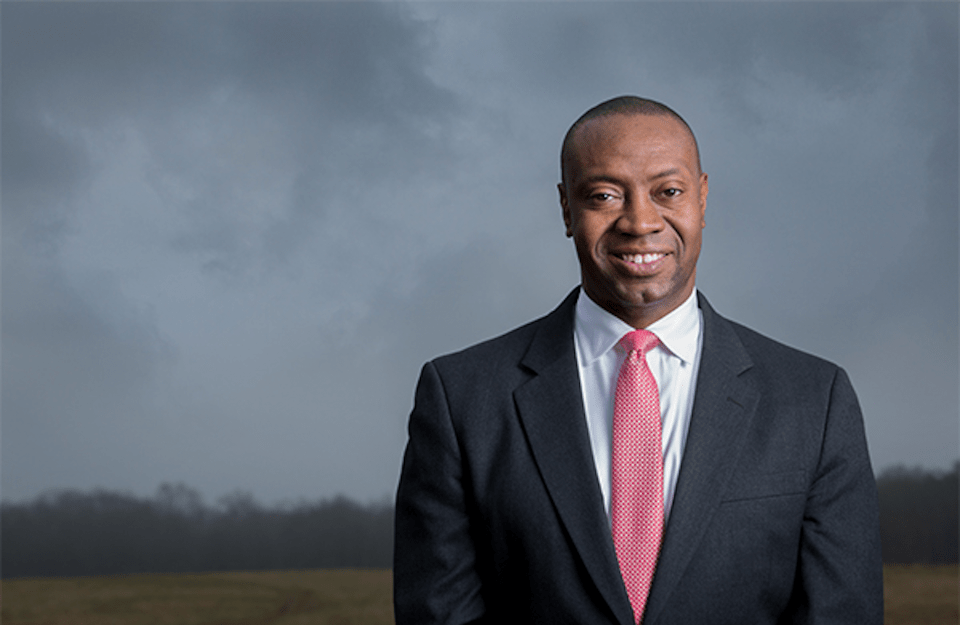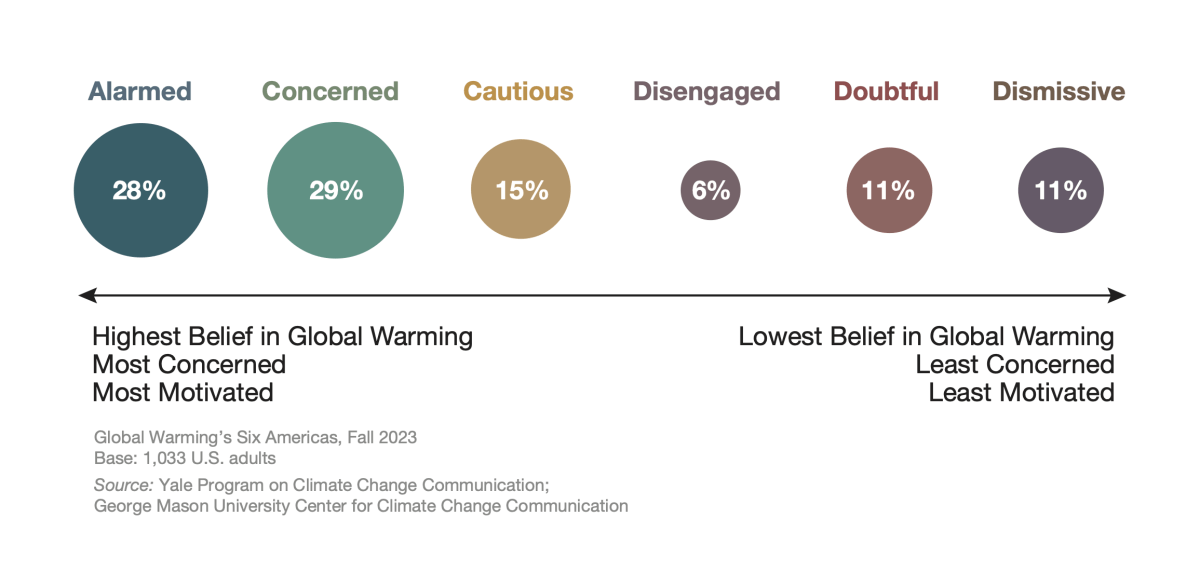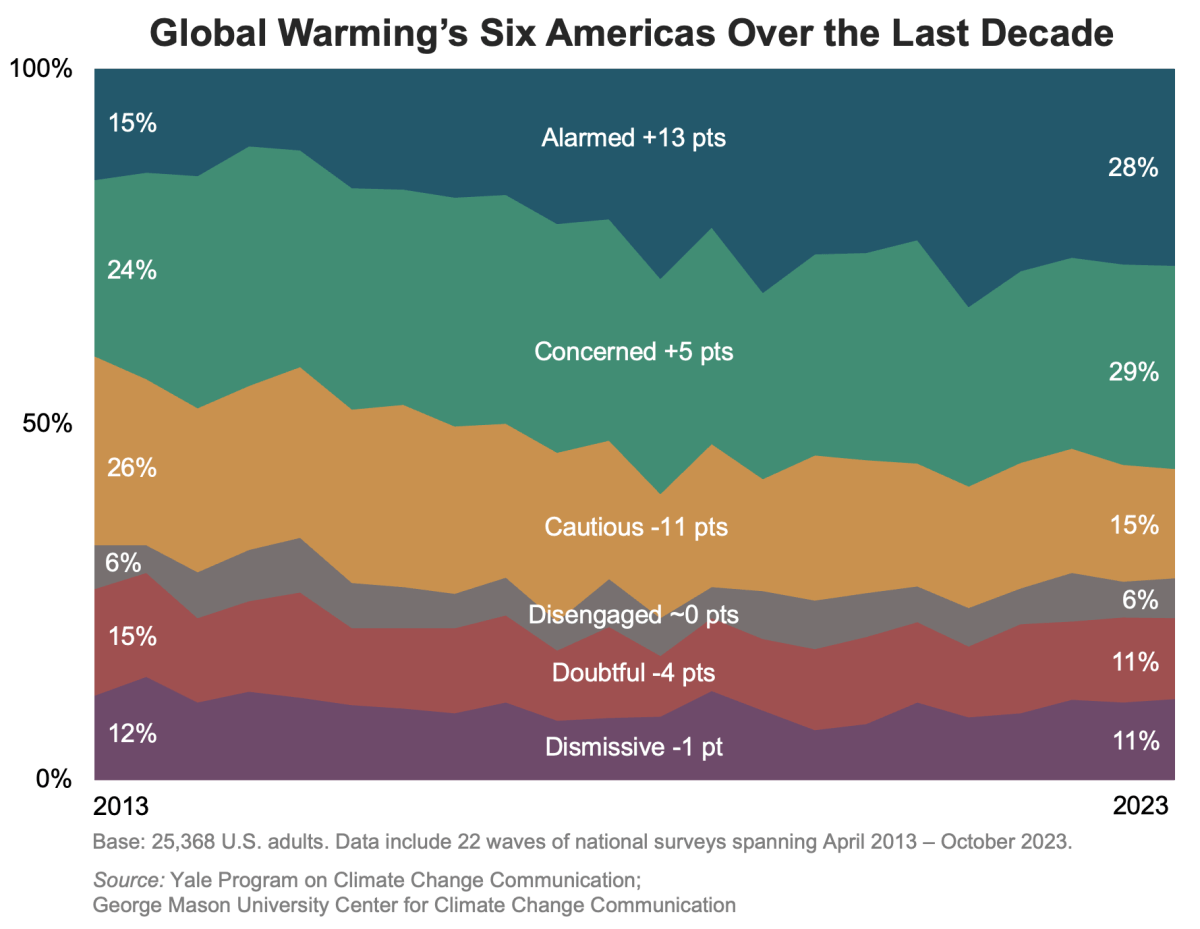Atmospheric Scientist and Science Communicator J. Marshall Shepherd delivers 2024 Annenberg Lecture
Shepherd discussed the complex problem of climate change and the importance of communicating it clearly.

Just as hundreds of environmental journalists were arriving on Penn’s campus to attend the Society of Environmental Journalists’ (SEJ) Annual Conference, atmospheric scientist J. Marshall Shepherd, Georgia Athletic Association Distinguished Professor at the University of Georgia, delivered the annual Annenberg Lecture.
Entitled, “Cloudy With a Chance of Science: Using the Lens of Weather to Explain How Perceptions Are Shaped,” Shepherd's lecture addressed a hurdle that many scholars face — communicating the importance of climate change action.
During her introduction of Marshall, Kathleen Hall Jamieson, Elizabeth Ware Packard Professor of Communication and Director of the Annenberg Public Policy Center, identified him as a talented climate communicator, remarking on his ability to make the science behind climate change clear and encourage people to take action against it.
Drawing on his experience as a teacher, a public lecturer, and a commentator on television and radio, Shepherd discussed how people’s “marinades” — a combination of their upbringing, religious beliefs, political leanings, geographical location, and other demographics — affect how they react to information about climate change.
He stressed that scholars who study any aspect of climate change, whether that’s the impact of online disinformation on public opinion or the basics of atmospheric science, need to take those marinades into account when discussing their research.
Sherpard spoke about research from the Yale Program on Climate Change Communication and the George Mason University Center for Climate Change Communication that found that Americans fall into six categories when it comes to their thoughts on climate change — the alarmed, the concerned, the cautious, the disengaged, the doubtful, and the dismissive.

It can be tempting to focus solely on convincing the dismissive group to care about climate change, he said, because they are usually the loudest, but Shepherd advises against that.
“The number of people in the dismissive category has been about 10% for the last 12 years,” he said. “Arguing with them is not going to move the needle.”
Instead, he encouraged listeners to meditate on how to reach the disengaged and doubtful.
“There is a significant portion of the population that we have to find the right mechanisms and approaches to engage,” he said.

Evolving Benchmarks
Another wrinkle in climate change communication is addressing people’s benchmarks for what’s “normal,” Shepherd said.
“People have these benchmark storms, benchmark heat waves, benchmark floods that they use as anchors for their experience and for their personal decisions,” he said, speaking about the kind of weather events people remember from their past. “But those benchmarks are not representative of the storm environments that we're living in now. The hurricanes that we've dealt with in recent years are rapidly intensifying. You may go to bed in a category one storm and wake up to a category four.”
He encouraged listeners to find ways to correct people’s benchmarks. “The rainstorms of
1970 are not like the rainstorms of 2024,” he said. “We must be aware of people’s mental models and adapt the way we’ve been communicating our messaging for years.”
Annenberg Public Policy Center and Climate
Shepherd’s work aligns with what the Annenberg Public Policy Center (APPC) is taking on in opening a new area of research, the Climate Communication division, headed by Vice Dean Emily Falk. Hall Jamieson announced the division during the SEJ conference, which the Annenberg Public Policy Center hosted in celebration of the Penn Center for Science, Sustainability, and the Media, led by climate scientist and Annenberg Professor Michael Mann.
The annual Annenberg Lecture brings to Penn leaders in academia, politics, public policy, or the media. It combines two previous lectures, the Walter and Leonore Distinguished Lecture in Communication, which started in 1992, and the Leonore Annenberg Lecture in Public Service and Global Understanding, which began in 2006. Both series, and the subsequent single lecture, honor Ambassador and Mrs. Annenberg, without whose vision and support the Annenberg School and Annenberg Public Policy Center would not exist.



